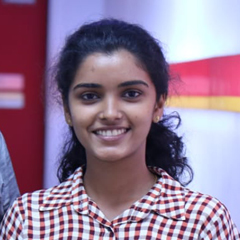New uniforms without headscarves put Lakshadweep girl students in a spot

Mail This Article
Kavaratti: A new circular issued by the Lakshadweep administration to enforce a common uniform code strictly across all schools in the union territory has put the Muslim girl students in a spot.
The students have been asked to follow the uniform code prescribed by the education department of the Union Territory of Lakshadweep Administration (UTLA). But the problem is that the code has omitted headscarves for Muslim girl students.
“The principals and heads of schools are hereby instructed to strictly adhere to the uniform pattern approved by the competent authority on all working days in schools under their jurisdiction. Non-compliance of these instructions will be viewed seriously,” says the circular issued by Rakesh Dahiya, Director of Education, on August 10.
Sources told Onmanorama that the authorities announced a common uniform for students in Lakshadweep last year. The set of uniforms provided to the students citing that the colour of the earlier uniform made it difficult to manage did not include headscarves for girls.
“Due to size misfits and insufficient uniform supplies, some students took it upon themselves to stitch their own uniforms. Muslim students, for whom headscarves and hijabs hold deep religious significance, continued to wear them while conforming to the colour scheme of the provided uniforms,” said Misbahuddin, treasurer of Lakshadweep Student Organisation.
This practice went unchallenged till Lakshadweep Administrator Praful Patel visited the schools early this year.
When he noticed that students were not adhering to the education department's prescribed version of the uniform, he told the Educational Secretary, who in turn, nudged the education department director to issue the said circular.
The School Management Committees and parents argue that students should be allowed to wear headscarves with the school uniform, as it is an integral part of their religious practice. They claimed the decision to enforce the uniform policy infringes on students' religious freedom and is authoritarian.
“Initially, principals were instructed to enforce the uniform policy during school assemblies. However, students resisted this directive by wearing shawls over their uniforms, rather than removing their headscarves. Following this the Education Department issued repeated circulars to schools on the matter,” said Mujeeb Khan, president of Nationalist Youth Congress, Lakshadweep Mainland Unit.
A recent circular on August 31 instructs officials to report daily how many students are wearing the prescribed stitched pattern of uniforms to the Education Department Director. The report should be supported by photographic evidence, it adds.
“Ninety-nine per cent of students in Lakshadweep are Muslim. It is difficult for girl students not to wear headscarves as it is an integral part of their religious practice and identity” said Misbahuddin.
As per the new directive, boys up to Class 5 should wear a half-pant (check design) and a sky blue half-sleeve shirt. Girls in the same group have been prescribed a skirt (check design fabric) and a sky-blue half-sleeve shirt. Similarly, boys in Class 6 to 12 should wear navy blue colour full pants and sky blue half-sleeve shirts, while girls should wear navy blue divider skirts and sky blue half-sleeve shirts.
“Earlier, Muslim girls could wear capris (quarter pants) or full-sleeve shirts with their uniform. With the introduction of new uniforms with half sleeves, many wear inner sleeves that cover their arms,” said Mujeeb.
The circular said the new uniform, stitched and supplied to schools, would ensure uniformity and boost brotherhood among students. But students and youth leaders beg to differ.


